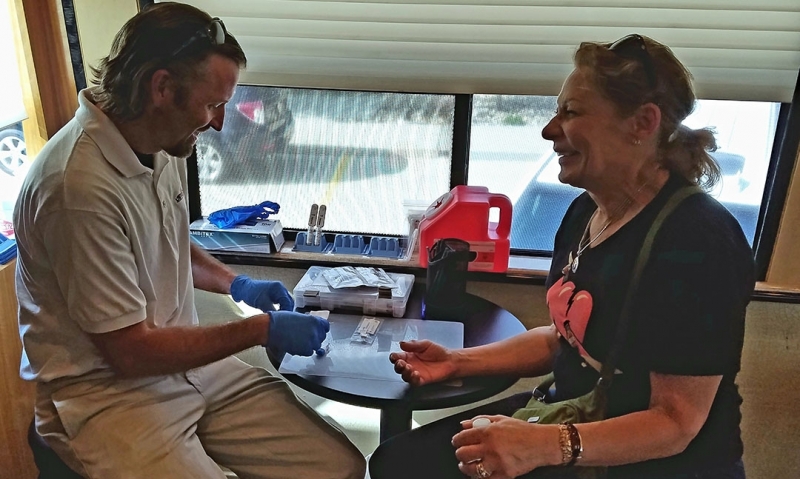
Nearly 190 veterans and others tested for hep C at the Sturgis Motorcycle Rally.
Sturgis, S.D., marked the first stop for The American Legion and AbbVie’s TAKE ON HEP C – a nationwide movement to bring free hepatitis C (hep C) antibody testing to veterans and their communities. Between Aug. 4-7 at the Sturgis Motorcycle Rally, 188 veterans and others were tested. And two veterans joined The American Legion.
A TAKE ON HEP C tour bus served as a mobile veteran outreach center that provided free hep C antibody testing with same-day results. Together, The American Legion and AbbVie – a global biopharmaceutical company – provided attendees at the Sturgis Motorcycle Rally with educational resources about the disease and how to understand their risk factors, get tested for free, and be energized to TAKE ON HEP C.
Many people stopped by the bus to tell their story, or of someone they know, about being tested and cured of hep C. Others understood the importance of hep C awareness and thanked The American Legion and AbbVie for their efforts, while others asked why they have been hearing a lot about hep C lately and were able to learn that hep C is now easily cured. The #TAKEONHEPC movement was spread during the rally through word of mouth, National Headquarters staff providing on-air interviews with local radio stations, and social media.
The next stop for the TAKE ON HEP C tour will be Minneapolis, Aug. 24-26, for The American Legion's 100th national convention. Visit www.legion.org/hepC for a complete list of tour dates.
One out of every 20 veterans enrolled with the Veterans Health Administration have hep C, more than three times the infection rate of the general U.S. population. Potential blood-to-blood exposure during military service, receiving a blood transfusion or organ transplant before 1992, and working in health care settings elevate the risk for veterans. Sharing personal items such as razors or toothbrushes with someone who has hep C, or receiving tattoos or body piercings in unregulated settings, can also pose exposure risks. All veterans should know their risk factors, get tested for hep C, and learn their results so they can talk with their doctors about next steps.
Visit www.legion.org/hepC to learn more about the disease, exposure risks, symptoms and testing information.
- Veterans Healthcare

